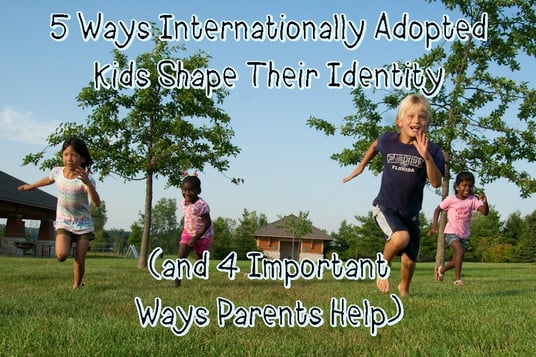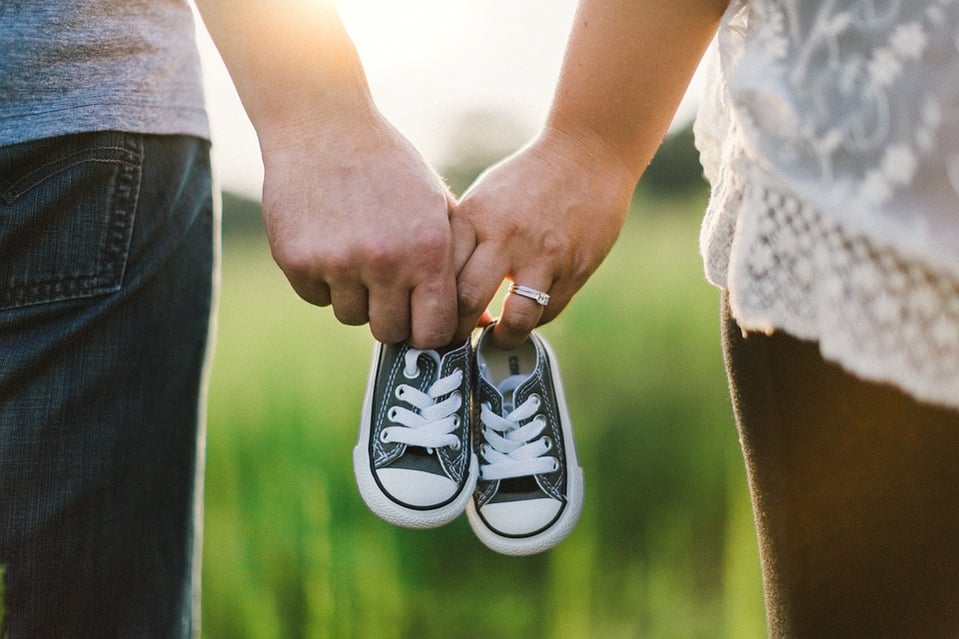When you adopt a child internationally, your family will become multi-cultural and perhaps inter-racial. The majority of children who are adopted internationally successfully integrate their personal, ethic, cultural and family identity..
But this does not automatically happen.
It is a complex and life-long process for the child that should be enabled and supported by the parents.

A child’s ethnic identity is their self-perception and sense of belonging to a particular group of persons with a common affiliation (e.g. African, Chinese). A child's cultural identity is determined by the society to which the person belongs and is socially transmitted from one’s family and community (e.g. Chinese-American). A child's identity development is a dynamic, life-long process, which requires active decision making and self-exploration. It is the integration of one’s self-definition, one’s definition by others, one’s ethnic identity, and one’s cultural identity.
This identity is not developed by itself. The family must actively encourage exploration and provide opportunities for learning and growth.
A child adopted internationally must explore and integrate:
- Their native ethnic and cultural heritage
- Their birth family's and adoptive family’s ethnic and cultural reality
- Their physical appearance
- The perceptions of them by others
- Their personal and society values and beliefs
In order to help a multi-cultural adoption work, the adoptive family must actively foster and encourage their child’s development of their unique identity. They must encourage their child to explore and embrace their identity and culture by actively engaging in appropriate cultural & ethnic activities, fostering a cultural community and positively embracing all aspects of their child’s identity.
Parents can help ensure that their child develops a positive cultural and racial identity by:
- Family engagement with the child’s native culture and ethnic heritage- Encourage and co-participate in activities of your child’s native culture (e.g. language learning, foods, holiday celebrations, traditions, culture camps, adoption support networks, etc.
- Balancing of the multiple cultures represented in the family and community- Incorporate your child’s cultural heritage, the family’s cultural heritage, and society’s culture into life so the child will feel a part of each. Parents who either deny differences or insistent on differences can make it difficult for the child to synthesize their dual identities.
- Recognition of extra-family forces - No child or family lives in isolation. Transracially adopted children will experience both racism and tolerance, discrimination and equality, exclusion and acceptance, and difference and sameness. Children whose parents provide them with strategies to cope with racism, discrimination, exclusion and difference are better able to develop a positive sense of self.
- Involvement with ethnic and cultural reference groups and role models- Children need to be exposed to, interact with, and develop relationships with role models from their native ethnic group. The family can take steps to be involved by moving to a more diverse area, enrolling the child in a more diverse school, joining appropriate clubs, or making an effort to make friends with people of the same ethnic or cultural group.
Family Connections, Inc., is an authorized New York State adoption agency that supports families who adopt internationally and are parenting children of diverse cultures. To learn more about the agency's services, please contact Dan or Anita at 607-756-6574 or 1-800-535-5556 or info@adoptfamilyconnections.




Let Us Know What You Thought about this Post.
Put your Comment Below.